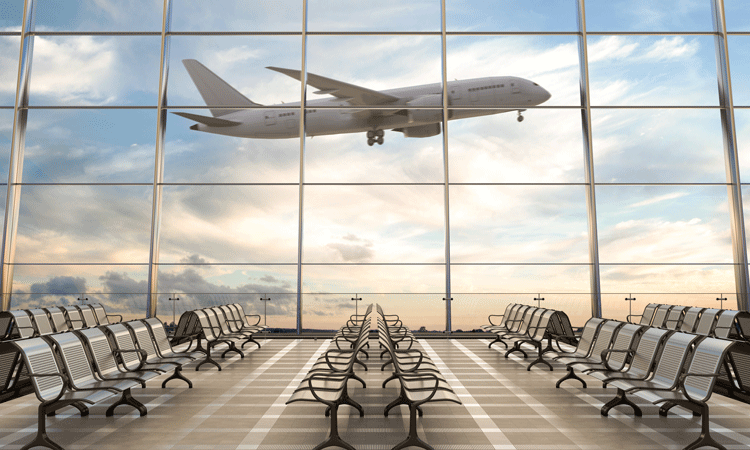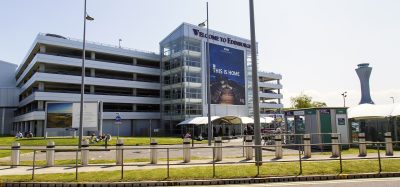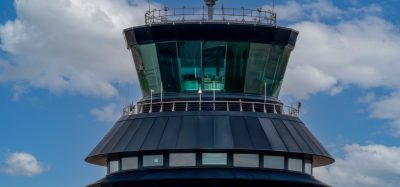Altering course for aviation recovery
Posted: 18 October 2021 | Joyce F. Carter | 1 comment
For International Airport Review’s Leader’s Series, Joyce Carter, President and CEO of Halifax International Airport Authority, explains how the COVID-19 pandemic has altered the course of her leadership strategy.


“Things must be starting to look up at the airport!” I get this comment a lot these days, and
my response is unequivocally: “Yes, they are!”
As I write this, we are in the early days of seeing happy passengers with smiles under their masks, catching a flight to visit family and friends, or arriving to visit our beautiful province of Nova Scotia, for the first time in almost 18 months. It is such a welcomed change, but we have a long way to go and we, like so many others in our industry, must adapt and do things differently.
In 2019, we welcomed an average of 11,000 passengers and 200 arriving and departing flights, daily. At the low point of the COVID-19 pandemic, that number plummeted to just 200 to 300 passengers and nine flights a day. We are estimating it will take until 2024 or later to return to pre-COVID-19 pandemic activity levels – so what do we do?
A more creative and diverse strategy
Before the COVID-19 pandemic, we were starting to develop a new five-year Strategic Plan and laying the groundwork for a new 20-year Master Plan. These strategies, among other things, had to be postponed until we could re-evaluate. We held onto certain plans, strategically, as an investment in our community, like continuing with the construction of our $36 million Air Cargo Logistics Park. Moving forward, we will keep focusing on the safety of our passengers and employees, while providing the world-renowned airport and customer experience Halifax Stanfield is known for.
But let us explore a little deeper, shall we? The COVID-19 pandemic has created an opportunity for us to be more creative and diverse. Our previous strategies, although we considered them to be successful at the time, were heavily reliant on passenger traffic, and given our current situation, we must alter our course.
On the outset of our recovery, we can paint a picture of what we hope our airport will look like in fine detail. Strategies for maintaining terminal and runway infrastructure, as well as upcoming technology advancements; our environmental impacts, among many other things – all critical to our future. But I challenge you, to also think about your people.
The runway to success
As the first woman to assume the role of Chair of the Canadian Airports Council, and one of a handful of women airport CEOs in Canada, I’ve held on tightly to the notion that supporting women in aviation is highly important.”
Now, given the toll that the COVID-19 pandemic has taken on our industry, and the additional workload many women have taken on as we navigated the demands of lockdowns, it is more important than ever.
Our industry remains a male dominated one, and as an employer I am aware that we are more likely to hire or promote someone that we identify with. I challenge you to keep this in mind. New perspectives and experiences can lead you down a runway to success and enhance what your organisation can accomplish. Here are my thoughts:
- Broaden the scope of what makes your ideal candidate
- Create a platform and opportunities for different
voices and ideas to be heard - Nurture skills and talent that already exists in your
organisation - Seize opportunities for your organisation to learn,
change and grow - Most of all, have faith in yourself and your abilities.
Airports, and the minds behind them, have proven time and time again to be resilient. There have been more than a few situations in my career, that I never could have imagined navigating when
I first started out. Believing in myself and my team fostered the trust that was needed to get through
those challenges, and in many instances, come out stronger. Think back to 9/11. This year marks its
20th anniversary, and I remember that day, as many of us do, and the days that followed with such
clarity. That tragedy sparked significant changes to airports on a global level. In fact, it is hard to
think of many areas where we do not do business differently than we did before that day.
COVID-19 has once again changed us, and our airport is not the same as it was before. Sure, the walls and the signs (most of them) are the same, even the services we provide to our passengers and airline partners remain. However, those of us behind it are forever changed. We are doing more, with less. Sacrifices have been made, and it is unlikely that there will ever be a return to what we once called ‘normal’. The future will be different than we thought it would be, so let us get there wisely and by working together.


Stay Connected with International Airport Review — Subscribe for Free!
Get exclusive access to the latest airport and aviation industry insights from International Airport Review — tailored to your interests.
✅ Expert-Led Webinars – Gain insights from global aviation leaders
✅ Weekly News & Reports – Airport innovation, thought leadership, and industry trends
✅ Exclusive Industry Insights – Discover cutting-edge technologies shaping the future of air travel
✅ International Airport Summit – Join our flagship event to network with industry leaders and explore the latest advancements
Choose the updates that matter most to you.
Sign up now to stay informed, inspired, and connected — all for free!
Thank you for being part of our aviation community. Let’s keep shaping the future of airports together!
Issue
Related topics
Airport construction and design, Airport development, Airport leadership, COVID-19, New technologies, Passenger experience and seamless travel, Passenger volumes, Runways and pavements, Sustainability, Workforce
Related airports
Related organisations
Airport Council International (ACI), Atlantic Canadian Airports Association, Canadian Airports Council (CAC)



















Thanks to you Joyce and all your peers who have remained diligently focused on the future of aviation in Canada. As a proud Canadian and Nova Scotian – thanks for everything you do for us daily.